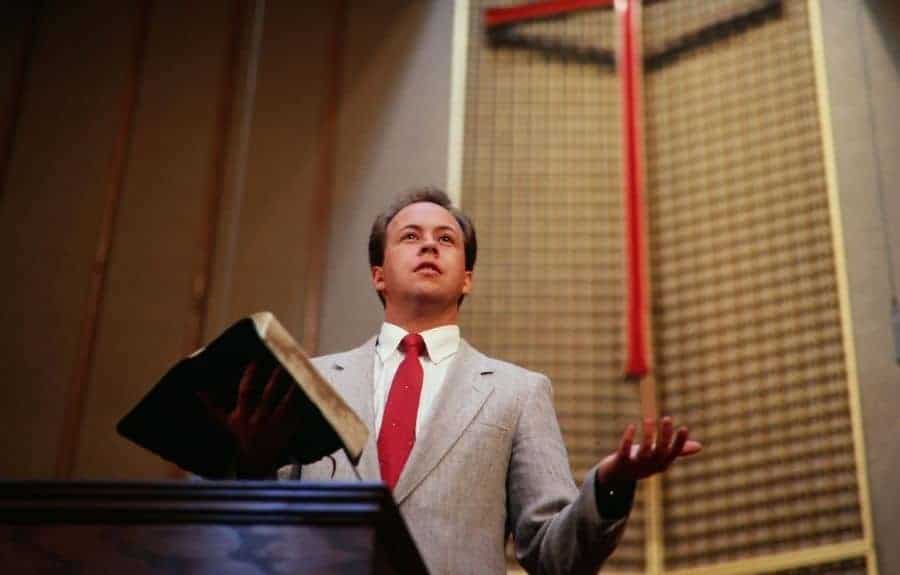What does it mean to be ordained? It’s a question people ask from time to time — and the answer isn’t always clear. With thousands of churches and countless parachurch organizations offering ordination today, the process varies dramatically depending on the group.
In this article, we’ll explore two very different answers to this important question — one rooted in biblical tradition, and another driven by modern convenience.
Two Very Different Paths to Ordination
When asking what does it mean to be ordained? we need to recognize two major approaches in today’s world:
1. Biblical and Church-Based Ordination
Many legitimate churches and Christian organizations take ordination seriously. They require candidates to:
- Demonstrate a call of God on their lives
- Meet specific spiritual and biblical qualifications
- Undergo a process of examination and preparation
This kind of ordination is viewed as a sacred agreement between an individual and the church body — affirming that this person is called by God to ministry.
2. Online or Instant Ordination
On the other hand, some websites offer quick and easy ordination — often for a small fee — with little to no requirements.
These “instant ordination” services are legal in many states, allowing individuals to perform weddings and other ceremonies. But while they may be legal, they lack the biblical foundation that the church has historically upheld.
To be ordained in the biblical sense means being set apart by God — not simply receiving a certificate online.
What Does It Mean To Be Ordained? (A Biblical Perspective)
So, what does it mean to be ordained? Ultimately, we believe ordination should reflect at least some biblical interpretation and spiritual responsibility.
Before we dive deeper, a few ground rules:
My Intent Is Not to Criticize — But to Clarify
After 35+ years in ministry, I’ve seen a lot — both good and bad — when it comes to ordination practices. My goal here isn’t to be harsh or unkind, but to offer a biblical perspective grounded in experience.

What Does It Mean To Be Ordained Biblically?
For clarity, let’s distinguish between two types of ordination:
| Type of Ordination | Rooted In | Purpose |
|---|---|---|
| Biblical Ordination | Calling from God, affirmed by the church | To serve in ministry roles under the guidance of the Holy Spirit |
| Legal or Instant Ordination | State recognition, often online | Typically used to perform weddings or ceremonies |
Biblical Ordination in the New Testament
Throughout Scripture, ordination refers to setting someone apart for a specific ministry role.
Biblical Examples of Ordination:
- Acts 6: The apostles ordained (set apart) a group of men to oversee food distribution within the early church.
- Titus 1:5-9: Paul instructed Titus to ordain elders in every city, establishing spiritual leadership according to specific qualifications.
What Does It Mean to Be Ordained? A Basic Definition
When asking what does it mean to be ordained? from a biblical perspective, here’s a simple, straightforward definition:
Ordination is the process of setting apart, authorizing, or conferring upon someone the responsibility to serve in a specific role within the Christian church.
This role may involve:
- Preaching and teaching
- Leading worship
- Providing pastoral care
- Guiding and equipping the church body
The Biblical Use of the Word “Ordained”
In Scripture, the word “ordained” often refers to the appointment of individuals to spiritual leadership roles — such as pastors, teachers, or evangelists.
Ordination is not what calls someone into ministry — God does that. Ordination is the church’s public recognition and affirmation of that calling. It’s a way of saying, “We see God’s hand on this person’s life, and we affirm their call to ministry.”
Qualifications for Ordination
To be ordained, a person should meet certain qualifications. While these can vary between churches and organizations, they often include:
- Evidence of a call from God
- Proven spiritual maturity
- Doctrinal agreement with the church or denomination
- Character consistent with biblical leadership standards (see 1 Timothy 3:1-7; Titus 1:5-9)
Who Performs Ordination?
Different Christian groups handle ordination in different ways:
- Local Churches: Some believe ordination should only be done within the local church context.
- Parachurch Ministries: Others allow reputable Christian organizations or denominations to ordain qualified individuals.
While methods and requirements may vary, it is our conviction that ordination should always be handled with respect for biblical principles and spiritual accountability.

What Does It Mean to Be Ordained? A Personal Perspective
Let me share a bit of my own journey to ordination — because what does it mean to be ordained? is not just theoretical for me.
Early Ministry Experience
I began serving part-time in church ministry in my early 20s. It started simply:
- I volunteered as a guitar player.
- I led small group worship times.
- I played in a local Christian band.
- Eventually, I was asked to take a part-time role leading students in our youth ministry choir.
Moving Into Full-Time Ministry
A few years later, after traveling with my band and building relationships with churches, I was offered a full-time position at a local church where we had ministered. I became the Minister of Music and Youth and served there for about six years.
After that, I took a similar role in a smaller church for a couple of years.
When I Was Finally Ordained
Interestingly enough, I wasn’t officially ordained until I was about eight years into ministry. It happened at the third church I served — a place where I had begun preaching, teaching, and sensing a deeper call to pulpit ministry.
At that point, the church leadership recognized what God was doing in my life and ministry, and they officially ordained me.
The Actual Ordination Service — What Happens During Ordination?
So, what does it mean to be ordained in a practical sense? For many churches, especially within the Baptist tradition, ordination isn’t just a title — it’s a sacred moment marked by a special service of prayer, affirmation, and commissioning.
Here’s what that service looked like in my own experience.
The Laying on of Hands
In the Baptist church where I was ordained, the service included a deeply biblical tradition known as the laying on of hands. This moment symbolizes the church’s prayerful blessing over the person being ordained and is rooted in Scripture.
“They presented these men to the apostles, who prayed and laid their hands on them.” — Acts 6:6
This was a meaningful act where the church elders — and any ordained deacons, pastors, or leaders — gathered to lay hands on the candidates for ordination, praying for God’s guidance, blessing, and wisdom.

The Ordination Service Structure
In my case, there were two of us being ordained in the same evening service. The process included several distinct parts:
1. A Personal “Charge” or Encouragement Message
- Each candidate often selects a friend in ministry to deliver a short sermon or charge — a message of encouragement and challenge specifically tailored to the individual.
- This is a treasured tradition in many Baptist churches.
A special memory for me came about 20 years later when my son asked me to deliver his ordination charge. That was one of the greatest honors of my life as a dad and minister.
2. A Charge to the Church
After the personal charges, the Senior Pastor usually delivers a second message — this one directed to the entire congregation.
This sermon challenges the church body to:
- Support those being ordained
- Commit to praying for them
- Encourage their ministry journey
3. The Laying on of Hands Ceremony
After the messages, the candidates are invited to the front of the church. Sometimes they are asked to kneel; other times, they sit in chairs.
Every ordained person in attendance — pastors, elders, deacons — lines up to pass by the candidates. They may:
- Touch their head or shoulders
- Offer a brief prayer or blessing
- Whisper words of encouragement
- Share a quiet hug or simply a word of affirmation
This deeply humbling moment ties the candidate’s calling to the biblical tradition of setting apart individuals for ministry service.
A Humbling and Life-Changing Moment
I remember standing there with my wife by my side, overwhelmed with gratitude and humility. As tears of joy and surrender filled my eyes, I realized this wasn’t just a title or ceremony — it was confirmation of God’s calling on my life.
Everything I had experienced in ministry up to that point felt like preparation for what God was calling me to do next.
My Ordination Certificate — A Lasting Reminder
Today, my ordination certificate still hangs in my office — signed by approximately ten ordained members of that church, including my dad. It serves as a daily reminder of both the responsibility and the privilege of serving in gospel ministry.
What Happens During an Ordination Service?
When asking what does it mean to be ordained? it’s important to understand what actually happens in an ordination service — especially within a local church setting.
While practices may vary between churches and denominations, the ordination service is a sacred time of prayer, blessing, and public affirmation of God’s calling on a person’s life.
The Ordination Service in the Baptist Tradition
In the Baptist church where I was ordained, the service included a few key elements — each rich with meaning and biblical tradition.
The Laying on of Hands
One of the central parts of the service was the laying on of hands — a practice rooted in Scripture (Acts 6:3-6). This involved church elders and ordained leaders praying over us, asking for God’s blessing, wisdom, and guidance as we stepped into ministry.
“They presented these men to the apostles, who prayed and laid their hands on them.” — Acts 6:6
The Charge to the Candidate
In my case, there were two of us being ordained that evening. A beloved tradition in many Baptist churches is the giving of a charge — a short sermon or message of encouragement specifically directed at the person being ordained.
Often, the candidate chooses a friend or mentor in ministry to deliver this message. Many years later, I had the incredible honor of giving this charge to my own son during his ordination — a moment I will never forget.
The Charge to the Church
After the personal charge to the candidates, the Senior Pastor usually delivers a second message — this time directed to the congregation.
This sermon serves as a reminder that the church also has a responsibility:
- To pray for those being ordained
- To encourage them in ministry
- To support their calling as they serve
The Laying on of Hands Ceremony — A Biblical Tradition
Following the messages, the candidates for ordination were invited to the front of the congregation. Depending on the church, candidates may be asked to kneel or sit in chairs.
Then, the Senior Pastor invited all ordained individuals — whether deacons, elders, pastors — to come forward.
As they passed by us, many:
- Placed a hand on our head or shoulders
- Whispered a brief prayer or word of encouragement
- Offered a quiet hug or blessing
This deeply biblical tradition — the laying on of hands — connects us to the early church’s example of setting apart individuals for ministry.
A Humbling and Spiritually Powerful Moment
As I stood before the church with my wife by my side, I was overwhelmed with gratitude and humility. I realized that everything I had done in ministry up to that point had been preparation for what God was calling me to do next.
It was a moment of joy, surrender, and deep spiritual reflection. I shed tears of joy — knowing I was stepping fully into the ministry God had prepared me for.
A Lasting Reminder of God’s Call
To this day, my ordination certificate hangs in my office — signed by approximately ten ordained members of that church, including my dad.
It’s a daily reminder:
- Of God’s faithfulness
- Of the privilege and responsibility of ministry
- And of the support of the local church that affirmed my calling
What Does It Mean To Be Ordained? Wrapping It Up
So, what does it mean to be ordained — really?
At its core, true ordination begins with a personal relationship with Jesus Christ. It starts when a person places their faith in the Son of God, surrendering their life to His calling and committing to serve in gospel ministry.
Biblical Ordination Is Both a Calling and a Commission
For someone to be genuinely ordained:
- They must display faith in Jesus Christ.
- They should demonstrate evidence of God’s call on their life for ministry.
- A local church or biblically grounded Christian organization should confer ordination — setting them apart for the ministry of the Gospel in a specific role.
Ordination is not about status. It’s about service. It’s a sacred recognition by the church of what God is already doing in someone’s life.
A Word of Caution About Instant Ordination Certificates
Unfortunately, in our culture today, it’s possible for almost anyone to get a legal certificate of ordination in a matter of minutes — often online — without demonstrating even the most basic understanding of the Bible or the Gospel of Jesus Christ.
And yes, while I’m not foaming-at-the-mouth angry about it, I’ll admit — it’s unsettling.
Why? Because ordination was never meant to be cheapened or treated casually. It’s not just a piece of paper. It’s a spiritual responsibility — one that should be approached with humility, faith, and accountability.
Final Thoughts — A Call to Integrity in Ordination
What does it mean to be ordained?
It means more than legality — it means calling, character, and commitment.
If you’re sensing God’s call on your life for ministry, I encourage you to pursue that calling within the context of a local church or a biblically sound ministry. Walk in faith. Serve with humility. And allow others to affirm what God is doing in your life.
I’d Love to Hear from You!
Have you been part of an ordination service — or are you sensing God’s call to ministry?
Leave a comment below and share your experience or thoughts. I’d love to encourage you in your journey!





Leave a Reply